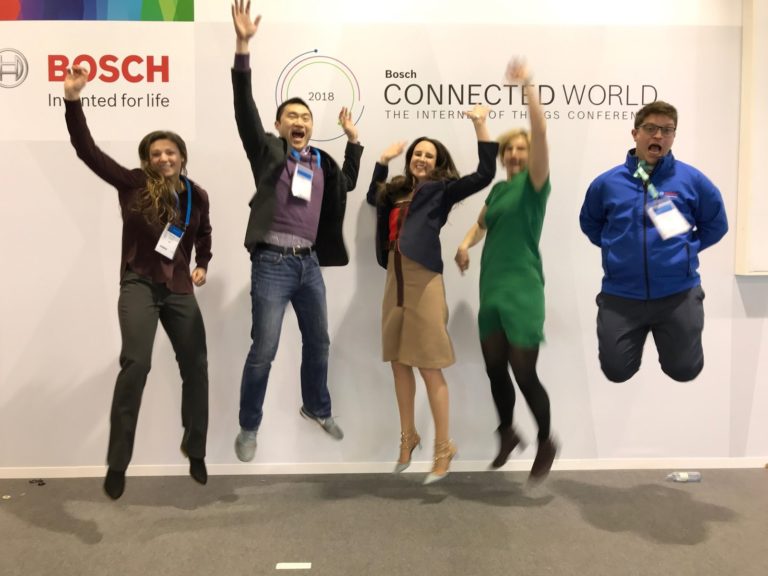Anya Babbitt | January 14, 2019
I founded SPLT upon the vision to change the way people meet and move worldwide. SPLT was initially born from necessity – the hotel shuttle I was using was full and I wound up splitting a ride with two other guests waiting for transportation to Downtown Los Angeles. And thus, the birth of SPLT. I had written my thesis on the reduction of carbon emissions and after living in Los Angeles and New York City, two of the most congested cities in our nation, it was the right time for me to focus on how we could reformat cities through innovations in technology.
My company is SPLT, we provide a frictionless transportation management platform that allows companies, universities, and municipalities to offer their workforces ridesharing services. Our B2B approach is designed especially for a closed-network of commuters. Through our software and service, we empower companies all over the world to manage their own mobility platforms and encourage sustainable commute choices internally. When we look at a city like LA where the incessant congestion has crept into every highway, street, and neighborhood, you have to wonder, can a B2B carpooling startup really transform the future of mobility?
Find a Vision that’s both Grounding and Limitless
In 2015, SPLT was accepted into the Techstars mobility accelerator in Detroit. This question came up frequently back then: What does a carpool app have to do with new mobility? Techstars was an incredible opportunity for us to work with other like-minded transportation startups, network with Fortune 500 sponsors, and gain invaluable insights from mentors. The program lasted 3 months, and every day we were challenged to think about the broader mission and vision for our company and how we were going to make a meaningful impact in this emerging space.
The consistent exercise allowed us to reach a vision that has not changed since 2015: to change the way people meet and move worldwide by providing mobility for all. At SPLT, we always think big. We don’t view ourselves as just a carpooling app, and we aren’t just trying to move people from point A to point B. We are inducing behavior change that’s necessary for the new wave of mobility to take. Sharing is the future of mobility, and carpooling is where it starts. Techstars challenged us to think deeply about our company and how we fit into the mobility puzzle. Other startups entering this space should spend time doing the same. Without a steady vision guiding us and grounding us, we might have made the mistake of limiting our technology to offer a one-dimensional solution.

Catalyzing Market Change
As a company with a B2B carpool product, we are pioneering a new market. More companies are beginning to focus efforts on providing mobility benefits and alternative commute options for their employees; however, this was not always the case. In 2015, it certainly was not commonplace. We spent a great deal of time selling our leads on their intangible need for a solution like ours. It took hustle and grit from our team to sell a product that the market neither knew it needed nor existed. Today, we have more inbound leads than ever coming in from companies around the world that want to bring corporate carpooling to their employees. There has been a noticeable shift in the market, and it occurred thanks to the carpooling, vanpooling, and ridesharing startups around the world trailblazing this new and ever-evolving space.
Changing the Culture
SPLT not only exposes companies to include commute benefits for their workforce, our awesome team also works closely with the end-users to encourage a culture of sharing and promote carpooling adoption and retention. Carpooling is not an easy choice for many commuters, especially in the U.S. There are some exceptions in areas like LA where commuters are drowning in single occupancy vehicles and have turned towards HOV lanes as their rescue boat. However, for majority of SPLT’s customers, their entire workforce drives to work by themselves, passing other co-workers along the way every day. This is inefficient and unsustainable. This is the next hurdle we need to overcome in our quest to reach the future of mobility – the behavior changes required at the individual level.
SPLT has come a long way since Techstars mobility in 2015, this past February, we were excited to announce Robert Bosch GmbH’s full acquisition of SPLT at the Connected World 2018 conference in Berlin, Germany. Looking to the future, we are thrilled to work with Bosch Connected Solutions to continue to re-architect cities of the future by changing the way people meet and move worldwide.
So, what does a carpooling startup have to do with new mobility?

This blog was originally published by LA Comotion.
